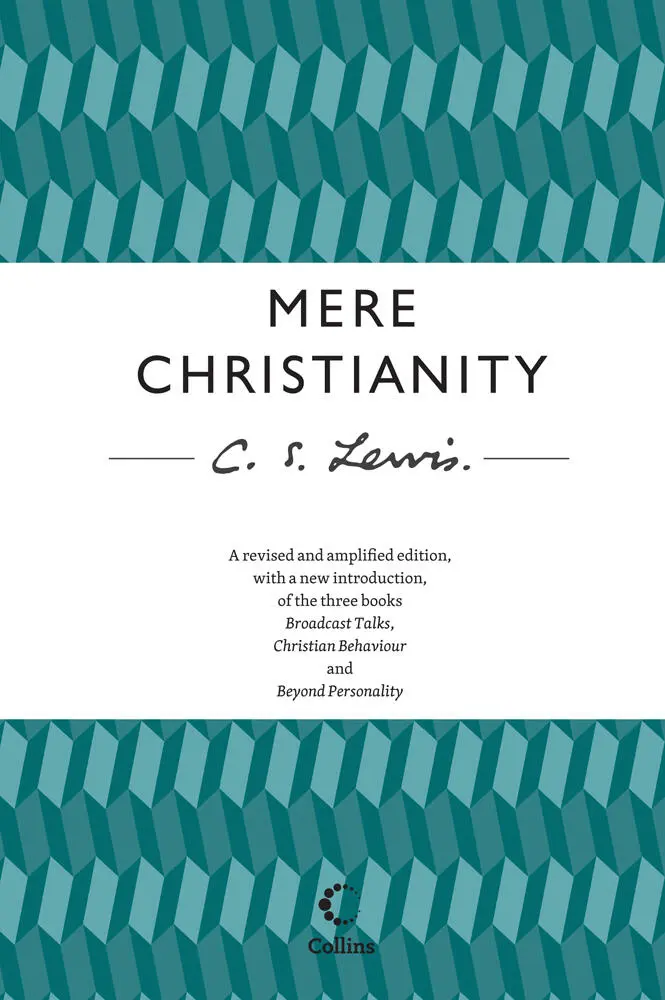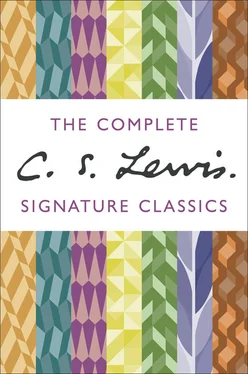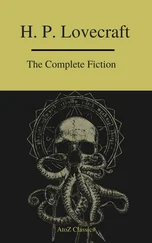The Complete C. S. Lewis Signature Classics
Mere Christianity
The Screwtape Letters
The Problem of Pain
The Four Loves
The Great Divorce
Surprised by Joy: The Shape of My Early Life
Miracles

Cover
Title Page
Mere Christianity
The Screwtape Letters
The Problem of Pain
The Four Loves
The Great Divorce
Surprised by Joy: The Shape of My Early Life
Miracles
Copyright
About the Publisher Конец ознакомительного фрагмента. Текст предоставлен ООО «ЛитРес». Прочитайте эту книгу целиком, купив полную легальную версию на ЛитРес. Безопасно оплатить книгу можно банковской картой Visa, MasterCard, Maestro, со счета мобильного телефона, с платежного терминала, в салоне МТС или Связной, через PayPal, WebMoney, Яндекс.Деньги, QIWI Кошелек, бонусными картами или другим удобным Вам способом.

Preface
Foreword
Book 1. Right and Wrong as a Clue to the Meaning of the Universe
Chapter 1 - The Law of Human Nature
Chapter 2 - Some Objections
Chapter 3 - The Reality of the Law
Chapter 4 - What Lies Behind the Law
Chapter 5 - We Have Cause to be Uneasy
Book 2. What Christians Believe
Chapter 1 - The Rival Conceptions of God
Chapter 2 - The Invasion
Chapter 3 - The Shocking Alternative
Chapter 4 - The Perfect Penitent
Chapter 5 - The Practical Conclusion 60
Book 3. Christian Behaviour
Chapter 1 - The Three Parts of Morality
Chapter 2 - The ‘Cardinal Virtues’
Chapter 3 - Social Morality
Chapter 4 - Morality and Psychoanalysis
Chapter 5 - Sexual Morality
Chapter 6 - Christian Marriage
Chapter 7 - Forgiveness
Chapter 8 - The Great Sin
Chapter 9 - Charity
Chapter 10 - Hope
Chapter 11 - Faith
Chapter 12 - Faith
Book 4. Beyond Personality: Or First Steps in the Doctrine of the Trinity
Chapter 1 - Making and Begetting
Chapter 2 - The Three-Personal God
Chapter 3 - Time and Beyond Time
Chapter 4 - Good Infection
Chapter 5 - The Obstinate Toy Soldiers
Chapter 6 - Two Notes
Chapter 7 - Let’s Pretend
Chapter 8 - Is Christianity Hard Or Easy?
Chapter 9 - Counting the Cost
Chapter 10 - Nice People or New Men
Chapter 11 - The New Men
The contents of this book were first given on the air, and then published in three separate parts as Broadcast Talks (1942), Christian Behaviour (1943) and Beyond Personality (1944). In the printed versions I made a few additions to what I had said at the microphone, but otherwise left the text much as it had been. A ‘talk’ on the radio should, I think, be as like real talk as possible, and should not sound like an essay being read aloud. In my talks I had therefore used all the contractions and colloquialisms I ordinarily use in conversation. In the printed version I reproduced this, putting don’t and we’ve for do not and we have . And wherever, in the talks, I had made the importance of a word clear by the emphasis of my voice, I printed it in italics. I am now inclined to think that this was a mistake—an undesirable hybrid between the art of speaking and the art of writing. A talker ought to use variations of voice for emphasis because his medium naturally lends itself to that method: but a writer ought not to use italics for the same purpose. He has his own, different, means of bringing out the key words and ought to use them. In this edition I have expanded the contractions and replaced most of the italics by a recasting of the sentences in which they occurred: but without altering, I hope, the ‘popular’ or ‘familiar’ tone which I had all along intended. I have also added and deleted where I thought I understood any part of my subject better now than ten years ago or where I knew that the original version had been misunderstood by others.
The reader should be warned that I offer no help to anyone who is hesitating between two Christian ‘denominations’. You will not learn from me whether you ought to become an Anglican, a Methodist, a Presbyterian, or a Roman Catholic. This omission is intentional (even in the list I have just given the order is alphabetical). There is no mystery about my own position. I am a very ordinary layman of the Church of England, not especially ‘high’, nor especially ‘low’, nor especially anything else. But in this book I am not trying to convert anyone to my own position. Ever since I became a Christian I have thought that the best, perhaps the only, service I could do for my unbelieving neighbours was to explain and defend the belief that has been common to nearly all Christians at all times. I had more than one reason for thinking this. In the first place, the questions which divide Christians from one another often involve points of high Theology or even of ecclesiastical history, which ought never to be treated except by real experts. I should have been out of my depth in such waters: more in need of help myself than able to help others. And secondly, I think we must admit that the discussion of these disputed points has no tendency at all to bring an outsider into the Christian fold. So long as we write and talk about them we are much more likely to deter him from entering any Christian communion than to draw him into our own. Our divisions should never be discussed except in the presence of those who have already come to believe that there is one God and that Jesus Christ is His only Son. Finally, I got the impression that far more, and more talented, authors were already engaged in such controversial matters than in the defence of what Baxter calls ‘mere’ Christianity. That part of the line where I thought I could serve best was also the part that seemed to be thinnest. And to it I naturally went.
So far as I know, these were my only motives, and I should be very glad if people would not draw fanciful inferences from my silence on certain disputed matters.
For example, such silence need not mean that I myself am sitting on the fence. Sometimes I am. There are questions at issue between Christians to which I do not think we have been told the answer. There are some to which I may never know the answer: if I asked them, even in a better world, I might (for all I know) be answered as a far greater questioner was answered: ‘What is that to thee? Follow thou Me.’ But there are other questions as to which I am definitely on one side of the fence, and yet say nothing. For I am not writing to expound something I could call ‘my religion’, but to expound ‘mere’ Christianity, which is what it is and what it was long before I was born and whether I like it or not.
Some people draw unwarranted conclusions from the fact that I never say more about the Blessed Virgin Mary than is involved in asserting the Virgin Birth of Christ. But surely my reason for not doing so is obvious? To say more would take me at once into highly controversial regions. And there is no controversy between Christians which needs to be so delicately touched as this. The Roman Catholic beliefs on that subject are held not only with the ordinary fervour that attaches to all sincere religious belief, but (very naturally) with the peculiar and, as it were, chivalrous sensibility that a man feels when the honour of his mother or his beloved is at stake. It is very difficult so to dissent from them that you will not appear to them a cad as well as a heretic. And contrariwise, the opposed Protestant beliefs on this subject call forth feelings which go down to the very roots of all Monotheism whatever. To radical Protestants it seems that the distinction between Creator and creature (however holy) is imperilled: that Polytheism is risen again. Hence it is hard so to dissent from them that you will not appear something worse than a heretic— a Pagan. If any topic could be relied upon to wreck a book about ‘mere’ Christianity—if any topic makes utterly unprofitable reading for those who do not yet believe that the Virgin’s son is God—surely this is it.
Читать дальше














